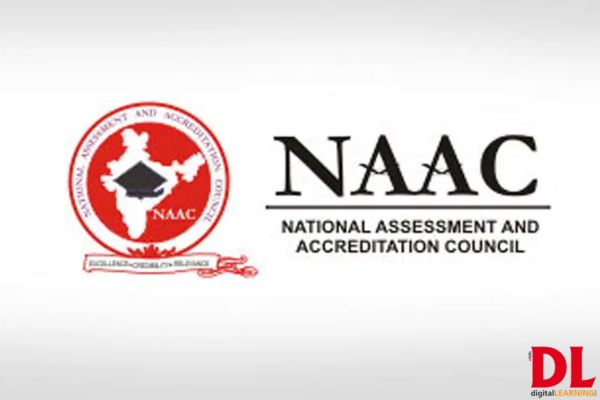
The quality of higher education, a key aspect of the National Education Policy (NEP) 2020, is set to undergo significant improvements with the introduction of reforms from the Dr Radhakrishnan Committee. Approved by the Ministry of Education and adopted by the National Assessment and Accreditation Council (NAAC), these reforms include the introduction of Binary Accreditation and Maturity-Based Graded Levels to enhance educational standards.
To implement these changes, the Apex Committee and various Discipline-wise Committees conducted approximately 40 meetings, consulting stakeholders to finalize the necessary manuals and processes for Binary Accreditation. In the coming months, NAAC will conduct five regional workshops to gather feedback from universities and colleges on the Binary Accreditation manual before its official launch. NAAC also plans to engage with Higher Education Departments and Councils across states to ensure widespread participation in the new accreditation process.
The proposed framework aims to reduce cycle time, lower accreditation fees, and eliminate the need for physical peer team visits. Data validation, primarily quantitative, will be conducted by the institutions to ensure objectivity and correctness in assessments. The framework includes 59 metrics for universities, 56 for autonomous colleges, and 46 for affiliated colleges. NAAC has also developed discipline-specific manuals for fields such as law, health sciences, and management to meet their specific requirements.
During the inaugural workshop, Dr. Nirmaljeet Singh Kalsi, Former Chairperson of the National Council for Vocational Education and Training, underscored the importance of integrating skill development into the accreditation framework. He also highlighted the relevance of the National Curriculum Framework to skill development.
Professor Kalsi emphasized the necessity for changing NAAC parameters stemming from NEP 2020, particularly in integrating the national curriculum framework and skill development. He introduced major approaches for incorporating skills into disciplines like humanities and social sciences and also proposed Education 5.0, which focuses on online and blended learning, further stressing the need to integrate innovations into the accreditation framework.
The Binary Accreditation Framework (BAF), presented at the workshop, is derived from the 10 Attributes proposed by the Dr. Radhakrishnan Committee. These attributes are classified based on input, process, and outcome dimensions essential for achieving quality assurance in higher education. The framework shifts focus to ‘outcome and its impact’ on the contribution of higher education to the nation’s socio-economic development. It is designed to accommodate the requirements of universities, autonomous, and affiliated colleges, and captures the uniqueness of institutions impacting specific stakeholder groups.
Dr. Devendra Kawday, Adviser, NAAC, detailed each metric, explaining the rationale for new metrics essential for the quality of higher education in the current context. The first of the five regional workshops was organized in partnership with IISc Bengaluru on July 16.
In the coming months, NAAC will continue to gather feedback from universities and colleges through these workshops to refine and finalize the Binary Accreditation manual before its official launch. NAAC’s engagement with higher education departments and councils across states aims to ensure widespread participation in the new accreditation process, marking a significant step towards enhancing the quality of higher education in India.



















